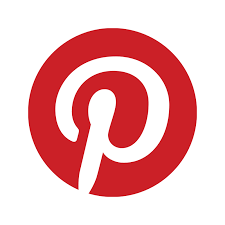How to Drive Massive Traffic from Pinterest Without Spending a Dollar

If you’ve been struggling to get traffic to your blog, online store, or digital products, Pinterest might be the missing link. Many creators and entrepreneurs overlook this visual search engine, but Pinterest is one of the most powerful platforms to drive massive traffic, without paying a single dollar. You don’t need ads. You don’t need a huge following. All you need is a smart content strategy, consistency, and the right optimization techniques.
In this guide, you’ll learn how to drive massive traffic from Pinterest organically—no budget required.
1. Set Up a Pinterest Business Account
If you’re serious about getting massive traffic from Pinterest, you need a business account. It’s free and gives you access to analytics, pin scheduling, and audience insights.
Steps to set it up:
-
Go to Pinterest Business
-
Convert your account or create a new one.
-
Claim your website to gain full analytics access.
-
Optimize your profile with a clear name, niche-specific bio, and branded profile picture.
2. Use Keywords Strategically
Pinterest is not just a social platform—it’s a search engine. That means keywords are crucial.
To get massive traffic from Pinterest, you must optimize your:
-
Profile name and bio: Include key terms your audience is searching for.
-
Board titles and descriptions: Use phrases your ideal readers might type into the search bar.
-
Pin titles and descriptions: Make them natural but keyword-rich.
-
Image file names: Even the image filename should reflect what the content is about.
Example: Instead of naming a file “IMG0001234.jpg,” name it “pinterest-marketing-tips.jpg.”
3. Design Click-Worthy Pins
Pinterest is a visual platform. If your pins aren’t visually appealing, people will scroll right past them. You don’t need a design degree—just follow a few principles.
Tips for creating high-performing pins:
-
Use Canva or Adobe Express for professional templates.
-
Stick to vertical images (1000 x 1500 px).
-
Include bold, readable text overlays.
-
Use contrasting colors to stand out.
-
Add your website or brand name on the image.
Create multiple pin designs for a single blog post or product to test what performs best.
4. Pin Consistently (and Smartly)
Pinterest rewards consistency. You don’t need to pin 50 times a day, but 3–10 high-quality pins daily is a good starting point.
Here’s how to stay consistent without burning out:
-
Batch-create pins weekly.
-
Use Pinterest’s native scheduler or tools like Tailwind (they offer a free plan).
-
Re-pin your content to multiple relevant boards over time.
Consistency signals to Pinterest that you’re an active, valuable contributor, increasing your visibility and traffic.
5. Use Niche-Specific Boards
Creating multiple boards centered around your content topics helps Pinterest understand your niche. This boosts your visibility in search and helps your pins get shown to the right audience.
Examples for a food blogger:
-
Easy Dinner Recipes
-
15-Minute Meals
-
Healthy Smoothies
-
Meal Prep Ideas
Make sure your board descriptions include relevant keywords, and regularly pin related content (including others' high-quality pins).
6. Link Every Pin to Valuable Content
Your pins must lead somewhere helpful. This could be:
-
A blog post
-
A lead magnet
-
A product page
-
A free guide or checklist
Make sure the page the pin leads to matches the pin’s promise. Pinterest favors pins that drive users to helpful and relevant landing pages. Misleading links can hurt your reach.
7. Leverage Idea Pins (Without Being Salesy)
Idea Pins are Pinterest’s version of stories. While they don’t allow direct links, they can build awareness and grow your audience.
Use Idea Pins to:
-
Share tips
-
Show a tutorial
-
Highlight a before-and-after
-
Provide value in a series
The goal is to build authority and encourage profile visits, where users will find your linked pins and boards.
8. Engage with Your Niche
While Pinterest isn’t as interactive as other platforms, engagement still matters. Re-pin high-quality content from others in your niche, comment on trending pins, and follow relevant creators.
This helps Pinterest’s algorithm associate your account with active, relevant content in your niche, giving your pins more exposure.
9. Study Analytics and Pivot
Pinterest Analytics is a goldmine. Once your pins have been active for a few weeks, check your stats.
Look at:
-
Top-performing pins
-
Click-through rates (CTR)
-
Saves and impressions
Double down on what’s working. Create similar pins, update old blog posts with fresh images, and recycle evergreen content with a new design
10. Bonus Tip: Create a Pinterest Traffic Funnel
If you want to convert Pinterest visitors into loyal followers or customers, set up a traffic funnel.
Basic funnel structure:
-
Pin → leads to a valuable blog post
-
The blog post has a freebie or opt-in offer
-
Visitors join your email list
-
You nurture them through emails that lead to products or services
This turns passive Pinterest traffic into long-term assets without spending a dime.
Final Thoughts
Getting massive traffic from Pinterest doesn’t require a budget—just a plan. With smart keyword use, eye-catching designs, consistent pinning, and optimized content, you can build an evergreen traffic source that grows over time.
Pinterest rewards creators who stay consistent and offer real value. If you’re strategic, patient, and persistent, you’ll start seeing real results—without paying for ads.
Start today, and watch the massive traffic from Pinterest roll in—organically.
- Art
- Causes
- Crafts
- Dance
- Drinks
- Film
- Fitness
- Food
- Jogos
- Gardening
- Health
- Início
- Literature
- Music
- Networking
- Outro
- Party
- Religion
- Shopping
- Sports
- Theater
- Wellness


